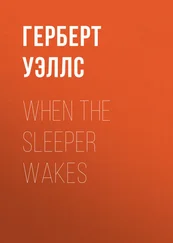“I’m not worried about the car. I’m worried about time. Take the interstate. It’s faster, and speed’s going to count for us tonight. You’re just the woman for the job. I need to stay on schedule, and time’s wasting, so let’s go a little faster.”
Faster, Luke’s voice agreed from somewhere behind the droning bees.
Abby pulled out of the parking lot and drove into the darkening night.
The day of joy has given way to a contentious night. A showdown is brewing, and Tara doesn’t understand it. Two people are determined to test her memory, and each one is determined to do it alone.
Tara imagines that Dr. Pine is used to winning these battles. He is also probably not used to having them with the likes of Shannon.
Mom and Rick conceded without argument. The doctor said it was time to see what Tara remembers about her accident, and the doctor must be right. The doctor said this should happen in private, with less “external stimuli,” and, again, the doctor must be right. It’s his business, after all. Mom and Rick are the type of people who trust doctors.
Shannon, though, is not having it.
“I want to be the one who asks her what happened,” she insists, and she waves Rick’s objection off before he can gather steam. “I agree with you that there shouldn’t be a crowd in the room. So it will just be me.”
“We don’t have family members conduct medical tests,” Dr. Pine says acidly.
“Dr. Carlisle encouraged us to engage with her. She said, in fact, that in most cases of locked-in syndrome, it is a loved one who detects progress. Not a doctor.”
Ding — put a point on the board for Shannon.
“My colleague is right,” Dr. Pine says, “but I’m not talking about simple engagement, I’m talking about specific memory testing, and with all due respect, I am the primary—”
“This could be traumatic for her,” Shannon cuts in. “I think she’d feel less trauma if she were with someone she knows. You have no idea what she’s been through in life, what fears she has, what triggers. I do. If she remembers the night, she’ll share it with me.”
Mom tries a timid “Shannon, let the doctor—”
“No!”
Even Tara is taken aback by the fierceness of Shannon’s response. She’s always been tenacious, but there’s something different here, a humming tension under her skin. Shannon is afraid.
But why? What scares her about leaving Tara alone with a doctor now?
“I’m simply going to have to insist—” Dr. Pine begins, but Shannon cuts him off again.
“Ask her.”
“What?”
“Ask Tara. You have a patient who can communicate her own wishes, Doctor. Let’s respect those.”
They stare at each other like gunslingers, and then Dr. Pine takes a deep breath and says, “Very well. We should know her opinion. I can’t argue with that.”
He seems disappointed and also to be speaking largely to himself. As with Shannon, there’s something different about Dr. Pine’s demeanor, something beneath the surface, but Tara doesn’t know him well enough to guess what it is.
As he reaches for the alphabet board, Shannon turns and focuses her fierce green eyes on Tara. She doesn’t say a word, but she doesn’t have to. Tara feels like she’s nine years old again, being quizzed by a child protective services worker about Mom’s drug use. Shannon would fix that stare on her, and Tara would say what Shannon had prepared her to say. Things were under control. That was Shannon’s mantra. Things were always under control. Even when things were absolute chaos, Tara believed that her big sister would wrestle it all back to order.
Dr. Pine swivels his stool to face Tara, slides closer to the bed, and extends the alphabet board. He’s moving distractedly, his usual focus lost. There is definitely something else on his mind. What’s going on here?
“You don’t need the board yet,” Shannon says. “Can’t we just ask her yes or no?”
A good question, and while he seems disgusted that she’s right, he nods grudgingly. “I’ll ask her. You can watch. There is no deceit here, Ms. Beckley.”
He focuses on Tara. “Tara, are you willing to communicate your memories of the accident with me?”
She’s a ghost again; she’s the thing on the other side of the Ouija board being summoned into the real world. Are you willing to communicate? When she and Shannon were kids, they would sneak up to the attic with a Ouija board and candles and play this game, and inevitably Tara would grow scared, and Shannon would never admit that she was moving the planchette. Mostly, though, Shannon wouldn’t use those moments to scare her. The planchette’s messages were always positive. Yes, the board would say, Mom will get better. Yes, Daddy can hear you when you talk to him at night, and he loves you. No, they will not break up this family.
You have to believe it, Shannon would say, because what reason would a ghost have to lie?
Tara, now the half-ghost, has no reason to lie. She flicks her eyes up. Yes, she is willing to communicate her memories of the accident.
“Thank you,” Dr. Pine says. “Now, Tara, are you willing to be alone with me when—”
“Don’t phrase it like that,” Shannon snaps. “Ask her if she wants me to stay.”
Dr. Pine turns and regards Shannon as if he’s considering new uses for his scalpel, but he submits. “Fine. Tara — do you need your sister present for this?”
She doesn’t need Shannon present for this. Why would she? But she remembers those looks from her big sister across the years, and she remembers the messages the Ouija board carried. She’d known that Shannon was the force that moved the planchette across the board, but she never minded because that force was love. A fierce, protective love that carried Tara through the worst of her life.
She flicks her eyes up once. Yes — she needs her sister to be present for this.
Dr. Pine seems to deflate, and Shannon offers him a tight smile. When he turns away, she gives Tara a wink and a thumbs-up.
“Maybe we all stay, then,” Rick says, and Dr. Pine and Shannon answer in unison, both the word and the tone:
“No.”
“I think we want to limit the stimuli and the pressure,” Dr. Pine says, gentler. “But we can ask Tara again if you’d like.”
“I trust your judgment,” Rick says, clearly more for Shannon’s ears than Dr. Pine’s. “We can let you do your job.”
Shannon doesn’t react. Mom squeezes Tara’s hand as she and Rick pass by, and then it is just the three of them: Tara, Dr. Pine on his stool beside the bed, holding the alphabet board, and Shannon standing at the foot of the bed, arms folded across her chest, eyes hard on Tara’s.
“Okay,” Dr. Pine says. “Let’s just begin with some basics, Tara. Yes-or-no questions to start. If there is any trouble with the process or if at any point you feel you wish to stop, I want you to give me three looks upward. Do you—”
He stops abruptly because Tara’s thumb twitches. This time, he sees it. Shannon does too. They both stare at her hand, then at each other, and then Dr. Pine says, “Tara, can you do that again?”
Not yet, she thinks, but soon. I’m getting closer. Because she knows what triggered it this time, just like with the clicking of the pen — old muscle memory, a delayed response to the thumbs-up Shannon gave her. Tara wanted to return the gesture, and she just did. Or came as close as she could, at least. There’s a lag, but there’s something opening too, a door between brain and body cracking open, and in time she may be able to push it wider.
She flicks her eyes up twice. No, she can’t do it again. She wants to say, Keep trying me, though, but there’s no way to do that.
Читать дальше






![Майкл Корита - Те, кто желает мне смерти [litres]](/books/396555/majkl-korita-te-kto-zhelaet-mne-smerti-litres-thumb.webp)





